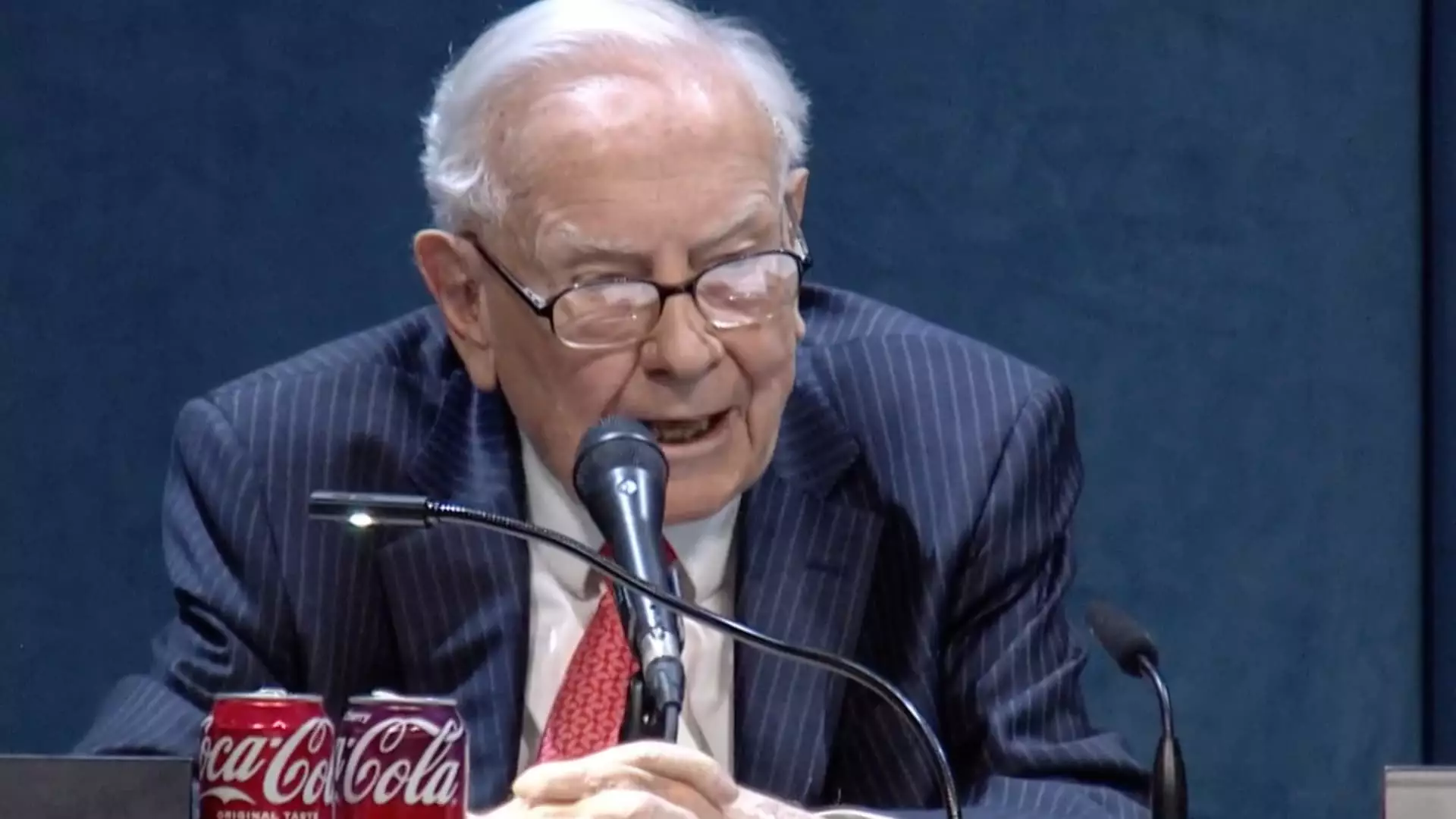Warren Buffett, the investment luminary known for his sage wisdom, recently made headlines regarding President Donald Trump’s aggressive trade policies. Without mentioning the president by name, Buffett articulated a message that resonates with a broader ideological stance against the growing wave of protectionism in global trade. His comments reflect a growing concern that punitive tariffs create an adversarial environment detrimental to both the U.S. economy and international relations. “Trade should not be a weapon,” he stated, positing that the escalating tariffs jeopardize the cooperative spirit upon which stable economic relations hinge.
The crux of Buffett’s argument lies in the fundamental mistake of securing national prosperity through isolation and barriers. Rather than protecting American interests, he contends that such policies could entrench animosity with global partners, thus undermining the fabric of international cooperation necessary for prosperity. As a proponent of liberal economic policies, Buffett emphasizes that a flourishing world economy ultimately contributes to America’s wealth and security.
Misguided Nationalism and Historical Context
Buffett’s critiques reflect a more profound apprehension over the resurgence of nationalistic trade policies reminiscent of the Economic Protectionism prevalent during the 1930s. Employing historical context in assessing today’s geopolitical climate, Buffett warns against overlooking the power dynamics at play. “It’s a big mistake in my view when you have seven and a half billion people that don’t like you very well,” he says, suggesting that sabre-rattling in trade negotiations could isolate the U.S. on the world stage.
In a post-pandemic world, such divisions risk exacerbating existing tensions. The bubble of self-sustained economic growth touted by many may burst under the weight of a retaliatory atmosphere. An economy is not merely local; it is embedded within a rich tapestry of interconnected partnerships. If the U.S. refuses to embrace trade opportunities globally, our standing on the world stage risks irreversible harm.
The Economic Ramifications
Buffett’s influence as an investor extends beyond his individual successes; it is deeply rooted in an understanding of macroeconomic principles. As Berkshire Hathaway’s portfolio reflects a diversified interest across industries, his insights carry significant weight. He pointed out that restrictive trade practices produce “considerable uncertainty” for companies—an adroit observation considering how fluctuations in tariff policies can ripple through supply chains and ultimately impact consumer prices.
The recent economic indicators paint a troubling picture, with the first-quarter GDP experiencing contraction for the first time since 2022. This reality contradicts the assertions made by proponents of unfettered nationalism. If historical trends tell us anything, it is that prolonged trade disputes sow discord and stagnation. Investors ought to heed Buffett’s cautionary notes, realizing that a defensive investment stance—such as his recent stock selling spree—hints at an overarching pessimism about future market conditions.
Buffett’s Vision for America’s Future
Throughout his storied career, Buffett’s focus has propped up a vision of America that thrives not through isolationism, but collaboration. His belief that “the more prosperous the rest of the world becomes, it won’t be at our expense,” challenges the notion that securing American interests involves barricading our markets from foreign goods and services.
Emphasizing economic interdependence, Buffett urges a pivot towards cooperation wherein the strengths of different nations augment each other’s economies. The wealthiest and most secure nations are typically those that welcome trade, not those that shut their borders. For Buffett, this isn’t just a theoretical framework; it is a pathway to a better future for the next generation. By fostering a climate where trading partners can capitalize on their unique strengths, the U.S. can lead a prosperous global environment, rather than retreat into an insular shell.
Key Takeaways for Investors
For the discerning investor, Buffett’s insights underscore the complexities of navigating today’s volatile economic landscape. His warning against protectionism serves as a rallying call to resist the seductive allure of nationalism in economics. Investors must remain vigilant, cognizant of how political decisions can cascade into corporate profitability and ultimately, personal wealth.
In light of both the historical context of trade policies and the potential for economic repercussions, a balanced approach favoring open trade will likely prove more sustainable. Buffett’s perspective encourages a future shaped by diplomacy and economic collaboration rather than divisive trade wars that only serve to rip apart the very fabric of global economics. Investors who heed these insights will find themselves better equipped to anticipate market movements in a world that continually challenges our conceptions of wealth and security.


Leave a Reply